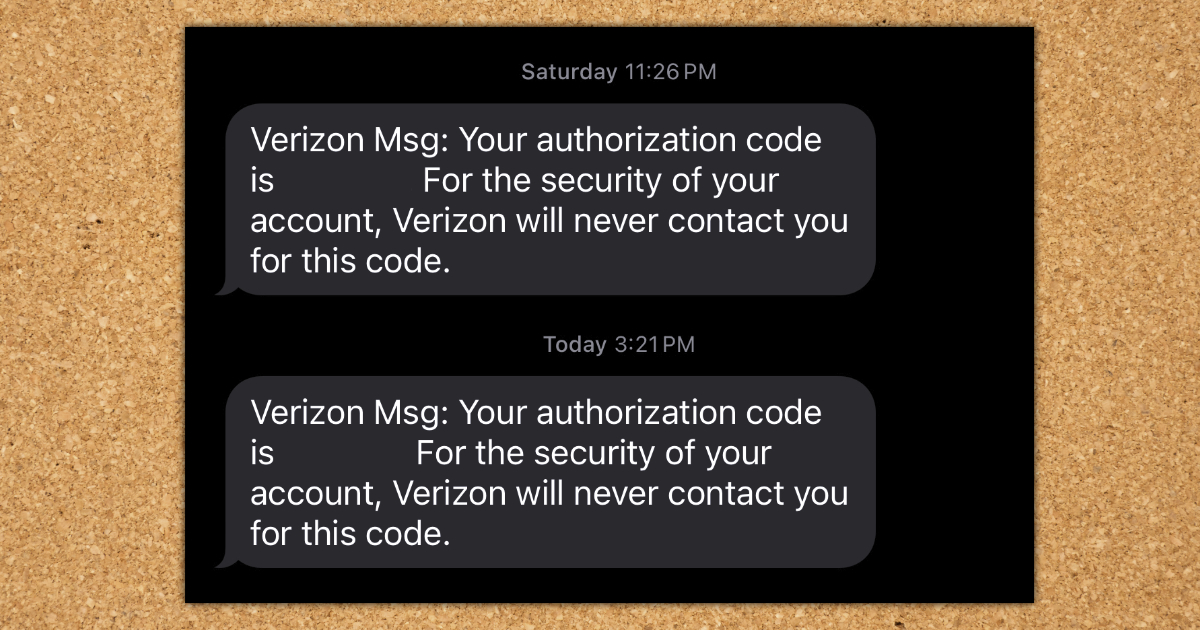Beware of Unexpected Verizon Authorization Texts
A Cautionary Tale

In the ever-evolving digital landscape, where our personal information is constantly at risk, it's vital to stay vigilant against ingenious scams. A recent experience with Verizon has highlighted the importance of this vigilance. I've been receiving unexpected "authorization code" text messages, seemingly from Verizon, a situation that might be familiar to many.
The Unsettling Pattern
It started subtly. I began receiving text messages containing authorization codes, which I hadn't requested. Initially, these seemed like harmless errors, but the frequency of these messages raised my suspicions. Little did I know, this was just the beginning of a more elaborate scam.
The Call from Verizon
On Wednesday, things took a more serious turn. I received a call from someone claiming to be from Verizon, inquiring if I had ordered some products. Alarmingly, I hadn't made any such orders. Fortunately, the caller - supposedly a Verizon representative - informed me they had canceled the order. But here's the catch: to process this cancellation, they needed to send me an authorization code, which I was then asked to provide over the phone.
Recognizing the Scam
This request was a red flag. Why would Verizon need me to relay an authorization code for an order cancellation? It dawned on me - this was a scam. By providing them with the code, I would inadvertently grant them access to my Verizon account. Their motive became clear: they were likely trying to add a phone to my account or purchase a new one using my details.

Just a sample of the text messages that I get from Verizon.
How Scammers Operate
Scammers often employ such tactics, sending unsolicited authorization texts to confuse potential victims. Once you receive a call, they create a sense of urgency or pose as a solution to a problem (like an unauthorized order), manipulating you into sharing sensitive information.
Staying Safe
Here are some tips to protect yourself:
- Never Share Authorization Codes: These codes are meant for your security. Sharing them can compromise your account.
- Verify the Caller's Identity: If you receive a suspicious call, hang up and contact the company directly through a verified number.
- Be Wary of Unsolicited Contacts: If you didn't initiate a transaction or inquiry, be cautious about unexpected texts or calls.
- Regularly Monitor Your Accounts: Keep an eye on your accounts for any unauthorized activities.
- Educate Yourself About Scams: Awareness is key. Understand the common tactics used by scammers.
Conclusion
In an age where digital scams are rampant, it's crucial to be aware and skeptical of unusual requests, especially those involving sensitive information like authorization codes. By staying informed and cautious, we can protect ourselves from these sophisticated scams. Always remember, when in doubt, reach out directly to the service provider through their official channels. Stay safe!
